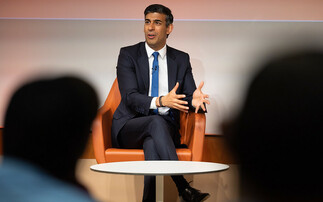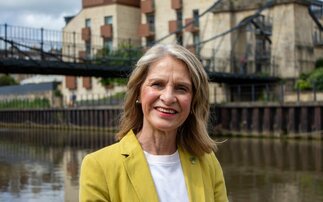There appears to be no plan (at least in public) for how UK environmental and climate policy would evolve outside the EU - green businesses and investors should be very worried
In the EU referendum debate the environment and the green economy are the dogs that didn't bark, sparking suspicions not because of what is said, but because of the eerie silence emanating from the Brexit camp.
On numerous issues each fusillade fired off by the Remain team is quickly returned with interest by Leave HQ. So when the Chancellor releases economic modelling detailing the likely impact of leaving the EU, he is accused by colleagues who used to love his economic modelling of peddling 'snake oil'. And when the Prime Minister sets out his strategic arguments for wanting to remain an influential member of the Brussels' club, he is labelled by supposed friends as the 'Gerald Ratner of modern politics'.
Equally, when the government warns the NHS could be disrupted by an EU exit, a Leave camp brimming with politicians who have in the past voiced their distaste for 'socialised medicine' suddenly declare all the money saved from leaving the EU could go straight to their beloved NHS (of course neglecting to mention this would have to be less the money they've already promised will go straight to the farmers).
And when the Energy and Climate Change Secretary says Brexit could push up energy bills, Team Leave offers a rapid rebuttal declaring energy bills would, in fact, go down (while declining to spell out precisely how or whether promised energy bill savings would be contingent on ditching the Climate Change Act).
Weirdest and most depressing of all, when the US president politely explains what the world's dominant superpower would most likely do in the event of Brexit the Out camp insists he doesn't know what he is talking about and then throws in some thinly-veiled racism for good measure.
However, after a fortnight in which a flurry of committees, NGOs, academics, ministers and ex-ministers have all warned a vote for Brexit is a vote for a dirtier, more polluted, and carbon intensive UK, the anticipated rejoinder from Vote Leave has been notable by its absence.
You have to search high and low on the organisation's website to find any mention of the environment. A Vote Leave spokesman tells me its 'Briefing Room' section of the website is constantly evolving, but with 12 issues covered so far there is still no place for the environment.
The only engagement with green issues appears to be in the energy section of the Briefing Room, where anyone looking for insight into what might happen to UK energy and climate policy post-Brexit can confuse themselves for hours trying to work out what Vote Leave's preferred outcome would be. We know they are upset Brussels is forcing the closure of UK coal power plants, but they also appear to be keen on lower taxes on solar panels and wind turbines. The only thing we can be certain of is they are very angry that the EU's "silly rules" mean they won't be able to buy the powerful vacuum cleaners they want. It is good to see this campaign really is sweating the big stuff.
Faced with this paucity of information on what the leading advocates of Brexit want to see happen to one of the largest and most influential sections of EU policy, I rung up Vote Leave and asked for a response to the Environmental Audit Committee report detailing near monolithic support for remain amongst environmentalists and green businesses, as well as wider concerns that leaving the EU would seriously jeopardise UK climate efforts and environmental protections.
Twenty-four hours later the following response, attributed to farming minister George Eustice, arrived: "Our natural environment is rich in diversity but is also complex. Imposing centralised policies through clunky EU directives has failed because these act as a straight jacket that stifles innovation in environmental management. The UK has also lost its voice and voting rights on many international wildlife conventions. If we Vote Leave and take control, we will regain our seat at the table at these conventions. We would be able to innovate, to pilot ideas and to really deliver for our natural environment."









